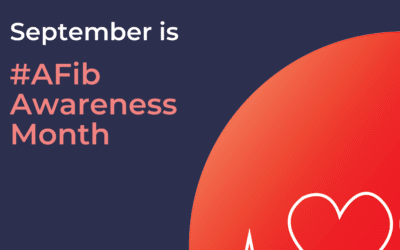What is Atrial Fibrillation?
Atrial fibrillation (AF) is the most frequent cardiac arrhythmia. AF is a significant burden to healthcare professionals and society, with an increased risk of stroke and embolism. Its incidence varies with age, from 1.7% for the youngest to 23.4% for the oldest. Moreover, AF also impacts patients’ mortality, increasing with age.
The use of a cardiac implantable electronic device (CIED) is familiar, and its relationship to AF has been widely described in the literature. It has been demonstrated that patients implanted with a dual-chamber pacemaker experienced AF in 75% of the cases, and 69% of the patients had AF detected by the pacemaker despite being asymptomatic. Insertable cardiac monitors (ICMs) are a solution to record a patient’s electrocardiogram for up to several years. ICMs automatically record abnormal rhythmic episodes, such as bradycardias, tachycardias, and AF.
CIEDs transmit the abnormal events by remote monitoring to the manufacturer, then transfer them to the physician. This amount of information can impact the workflow of the healthcare providers in charge of analyzing them. The main limitation is the number of false positive diagnoses classified as an AF event when it was just an artifact or noise.
Remote monitoring (RM) is recommended to reduce the number of in-office follow-ups for patients with pacemakers who have difficulties attending in-office visits. RM is also utilized to detect the progression of clinical AF, monitor the atrial high-rate episodes and subclinical AF burden, and see changes in underlying clinical conditions.
Implicity is committed to improving efficient and early AF detection via RM to improve patient care. Implicity’s latest science shows the performance of a novel algorithm to reduce by 79% the false positive rate of Medtronic ICM devices (HRS 2021). Moreover, Implicity developed a new AI-based algorithm allowing the reduction of false positive AF detection by 72% (ESC 2021). Implicity is involved in developing new AI solutions that save healthcare professionals time and ease the workload in patient follow-up.
Jean-Luc Bonnet, Ph.D., Head of Clinical Affairs, Implicity

